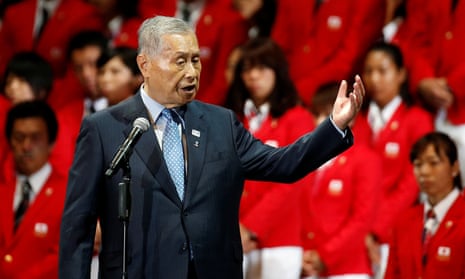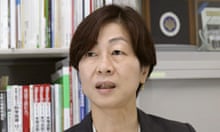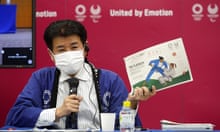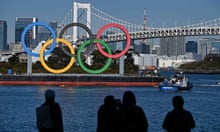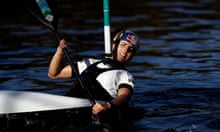As rousing motivational speeches go, it left a lot to be desired. Standing before 300 Japanese athletes about to leave for the Rio Olympics, the head of the organising committee for the Tokyo Games in 2020 issued a stark warning: sing the national anthem with gusto, or consider yourselves unfit to represent your country.
Yoshiro Mori, a former prime minister with a history of gaffes, launched his tirade on Sunday just after the athletes delivered an apparently lacklustre rendition of Kimigayo, Japan’s national anthem.
“Why can’t you all sing the national anthem together?” the 78-year-old Mori asked, as the athletes behind him looked on with glum expressions.
Some reports pointed out that the anthem had been billed as a solo performance by a singer from the self-defence forces.
Mori, though, recalled that members of the Japanese women’s football team who won the 2011 World Cup were “in floods of tears” when they sang Kimigayo, as were Ayumu Goromaru and his teammates during last year’s rugby World Cup.
“It’s not just a case of mouthing the words,” Mori said. “If you get to stand on the winners’ podium, sing the national anthem with a loud voice.
“If you won’t sing the national anthem, then you can’t consider yourselves representatives of Japan – that’s what I want to say to you.”
Sunday was not the first time Mori has had harsh words for Japan’s athletes. During the 2014 winter Olympics in Sochi, he singled out the popular figure skater Mao Asada for criticism after she failed to execute a triple axel during her short programme. “That girl, she’s always falling at a critical moments,” he said.
He also questioned the ability of Chris and Cathy Reed, who were born in the US but represented Japan in the ice dance competition. “They live in America,” Mori said. “Although they’re not good enough for the US Olympic team, we include these naturalised citizens in our team.”
Mori’s outburst came as Japanese Olympic officials played up the country’s chances of improving on their performance in London, where they won a record 38 medals, including seven golds.
They have set a target of between 20 and 33 gold medals in Tokyo, and are hoping a decent showing in Rio will provide the momentum they need.
“I really feel the onus is on me. I want us to win as many medals as possible,” the delegation’s general coach, Yuji Takada, said at the sendoff in Tokyo, which was attended by 10,000 well-wishers.
Takada said Japan was aiming for 14 to 30 medals in Rio, with golds coming in judo, gymnastics, swimming and wrestling, according to the Mainichi Shimbun.
Mori, a close friend of the Japanese prime minister, Shinzo Abe, became one of Japan’s most unpopular postwar leaders during his year in office, with his support levels at one point dropping to below 20%.
In 2000, he claimed that Japan was a “divine nation with the emperor at its core”, in comments that were criticised as a throwback to the country’s militarist past, when the emperor was considered a living god.
The following year, Mori continued playing a round of golf for two hours after being told that a Japanese fishing vessel crewed by high school students had been involved in a collision with a US submarine near Hawaii. Nine people, including four students, died in the accident.
